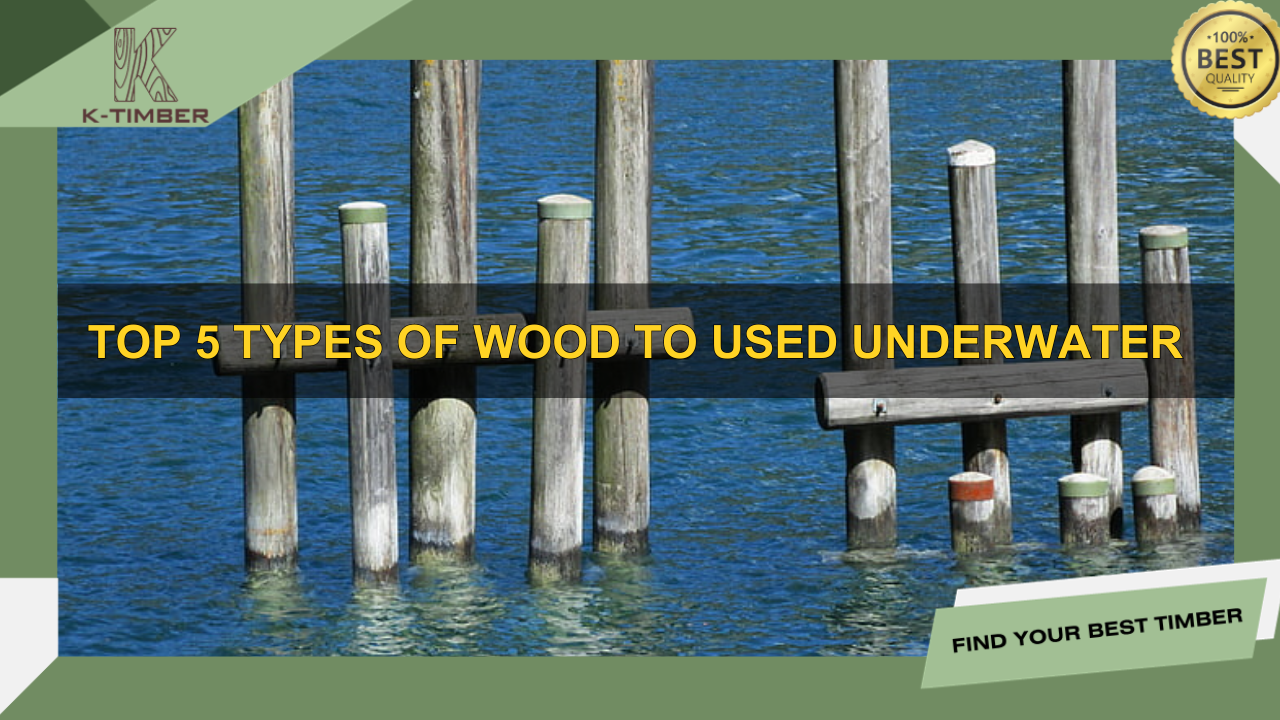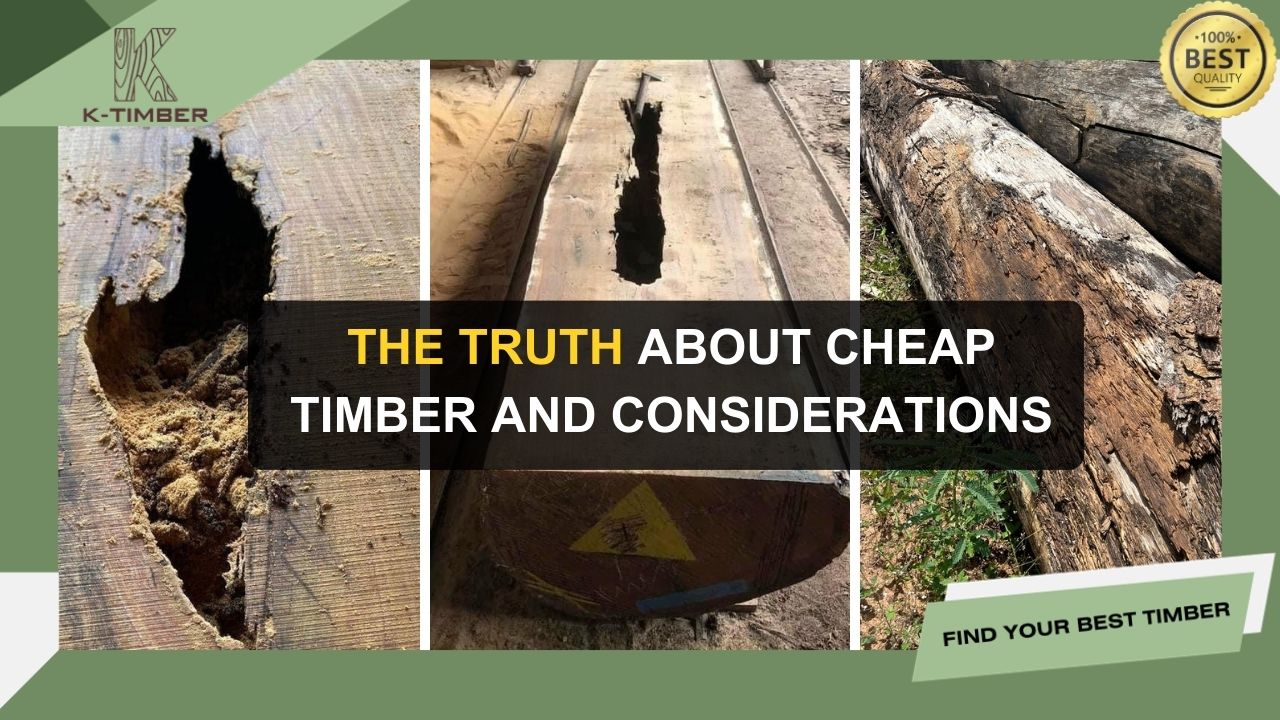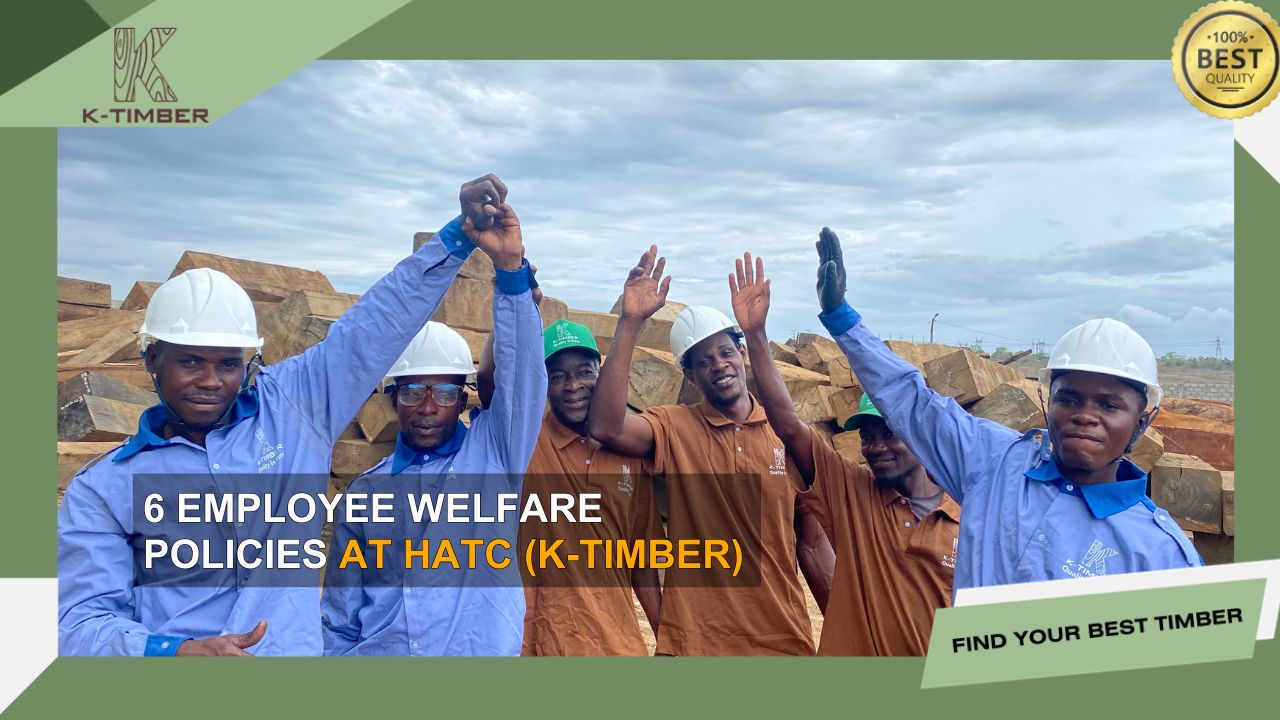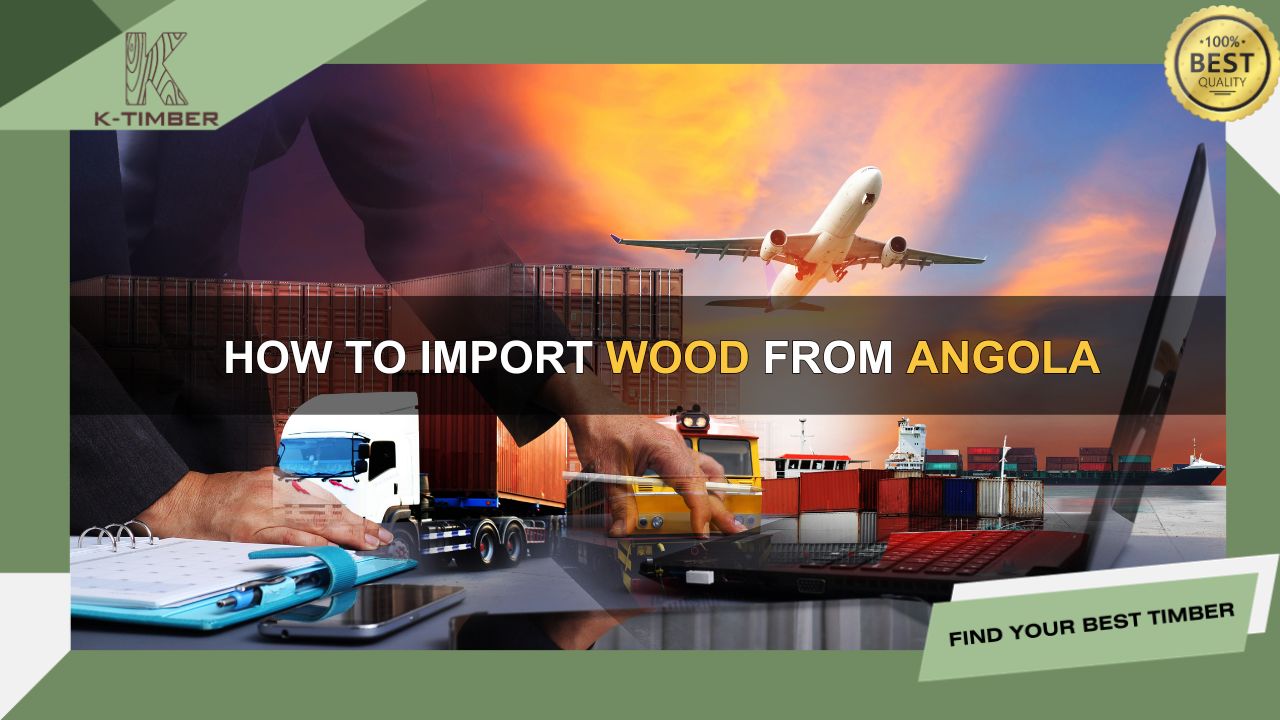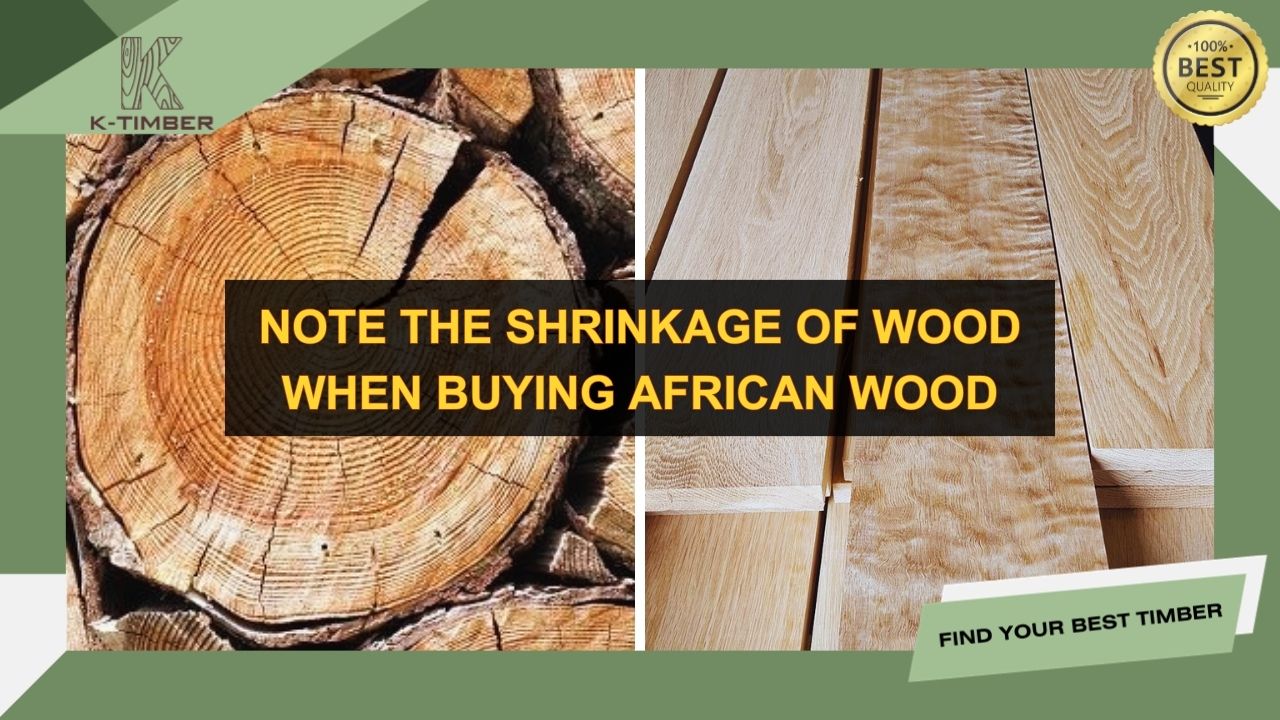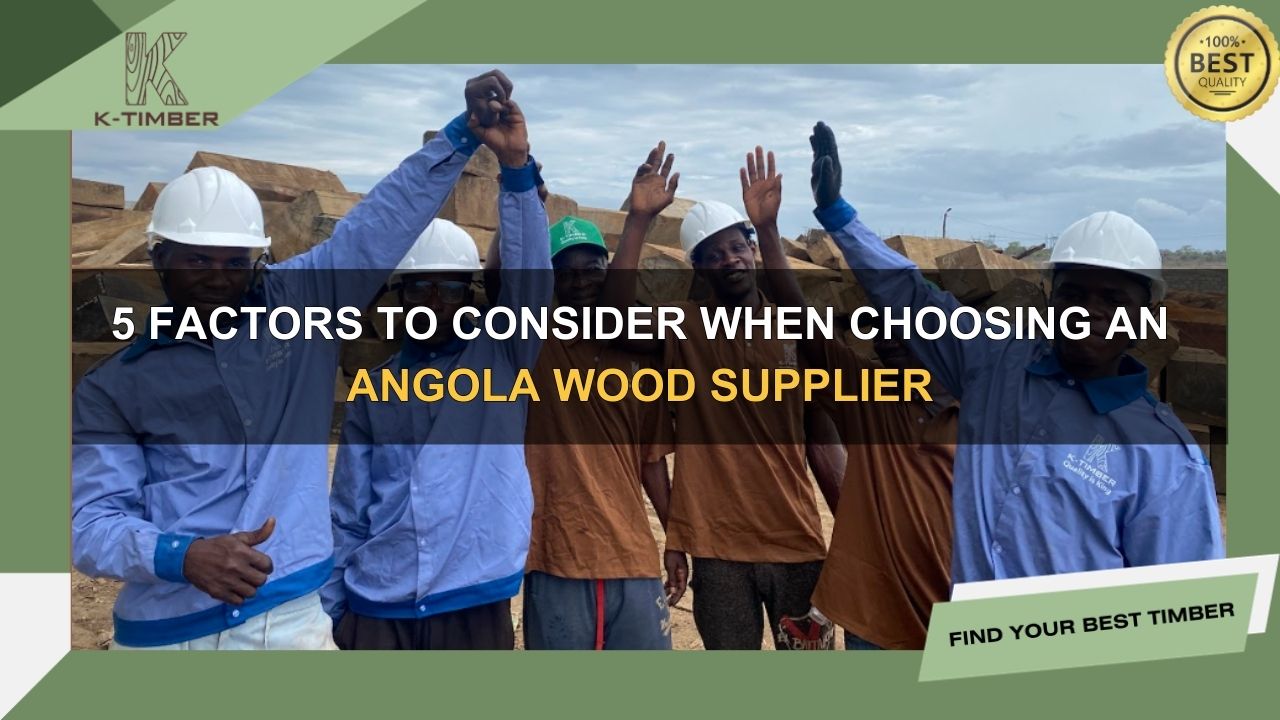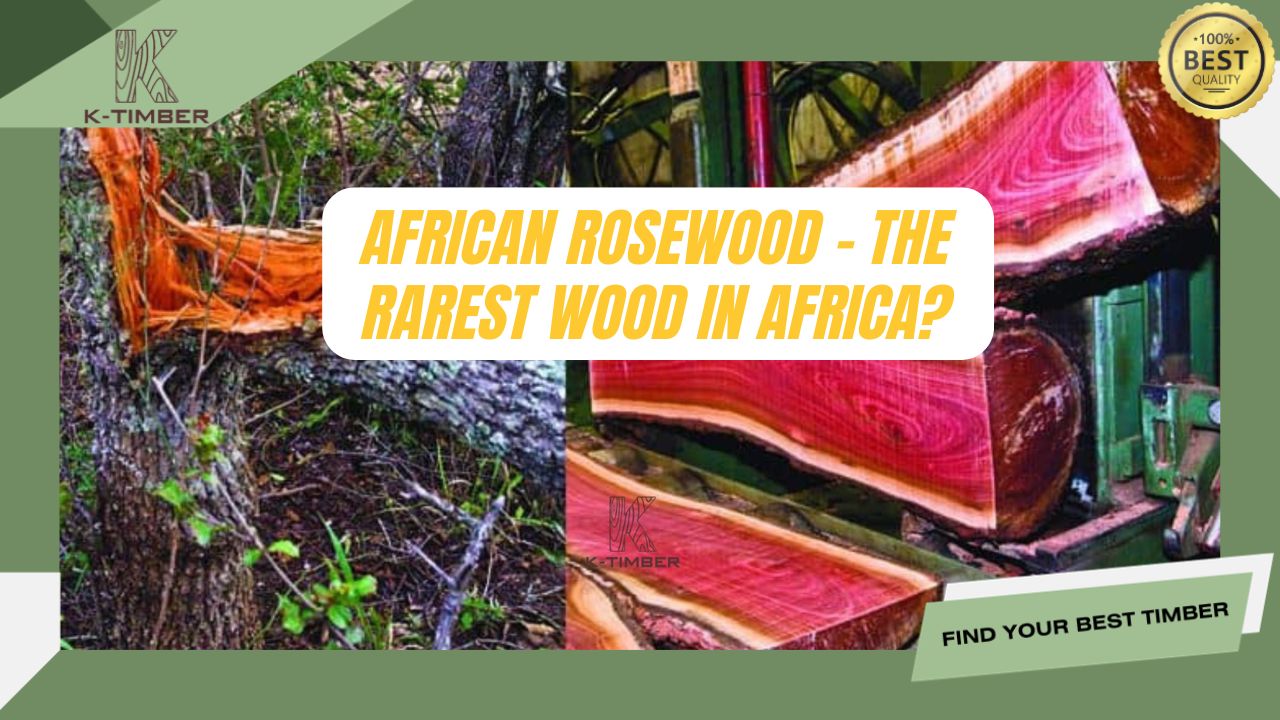The African timber market is always vibrant, promising huge profits but also full of unpredictable risks and challenges. Even seasoned experts have fallen victim to these sophisticated scams, which prey on greed and a lack of understanding of the African timber market. So how can you protect yourself from fraud when buying timber from Africa? Let K-TIMBER share with you 5 ways to help you buy African timber safely and intelligently.
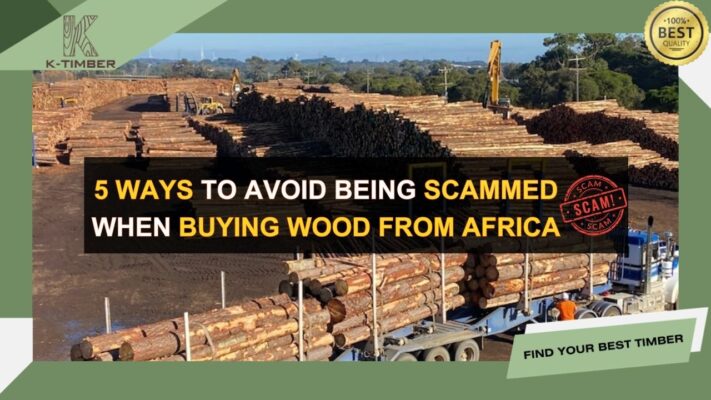
Table of Contents
Researching wood information beforehand
Before starting any business transaction, it is essential to understand the product or service well, and this is no exception in the timber industry. First, understanding the common name and scientific name of the type of wood will help buyers accurately determine its origin and characteristics.
Online research is an effective way to collect information, from academic materials to reputable websites and forums specializing in the timber industry. In addition, do not hesitate to seek the advice of experts in the field of timber. The feedback and reviews from experienced people will help you make more informed decisions.
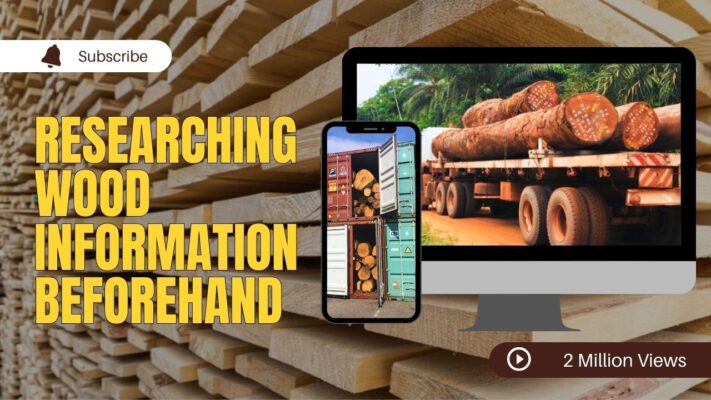
In addition, buyers should also pay attention to the following issues:
- There are many types of wood with similar grain and color on the market. This allows some unscrupulous sellers to take advantage of selling cheaper wood than valuable types of wood. Buyers should be wary of unusually low prices or when they notice unusual patterns or colors in the wood.
- Buyers should also check the quality of the wood carefully before buying. Good wood has a uniform color, no deep eyes, or cracks. Wood has high hardness and does not warp, or shrink when used.
Researching wood information carefully before buying is a necessary step to help buyers buy quality wood and avoid any risks.
Learn more: Why is wood from Mozambique, Congo, Niger cheaper than Angola & Cameroon?
Finding a reliable timber supplier
Choosing a reliable supplier is the first and foremost thing that any buyer should consider before making a purchase. Choosing a trustworthy supplier is not just about buying a commodity but also ensuring sustainability, quality, and ethical wood supply. Here are some criteria for evaluating a reliable timber supplier:
- Reputation and years of experience: A timber supplier with years of experience in the timber supply industry will have a wealth of knowledge and experience in selecting, processing, and storing wood to ensure the absolute quality of wood when it reaches customers. In addition, a reputable supplier will have many long-term customers and partners, which reflects the quality of their products and services.
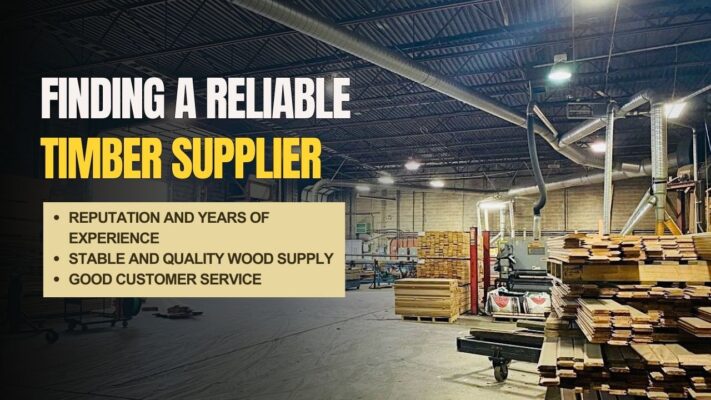
- Stable and quality wood supply: Wood supply from sustainable tropical forests in Africa plays an important role in ensuring the stability and quality of the product. Reliable suppliers not only focus on providing high-quality wood but also commit to partnering with sustainably managed forests. This not only protects the environment and maintains tropical ecosystems but also ensures a future wood supply.
- Good customer service: Another important factor to consider when choosing a timber supplier is the quality of customer service. It can be said that employees are the important face that makes each business successful. A supplier with a team of experienced professionals in the industry. This means that they have in-depth knowledge of the type of wood, production processes, and even industry regulations and standards to answer and support any customer inquiries 24/7.
In the African timber export market, K-TIMBER stands out as one of the leading reliable suppliers today. With over 20 years of in-depth experience in the timber export industry, K-TIMBER not only meets international quality standards but also contributes positively to the sustainable development of the timber industry. The strong partnership with the Government of Angola is a testament to K-TIMBER’s credibility and commitment to stable supplies from this region. This not only creates a stable business environment but also shows the initiative to participate in environmental protection and community development activities.
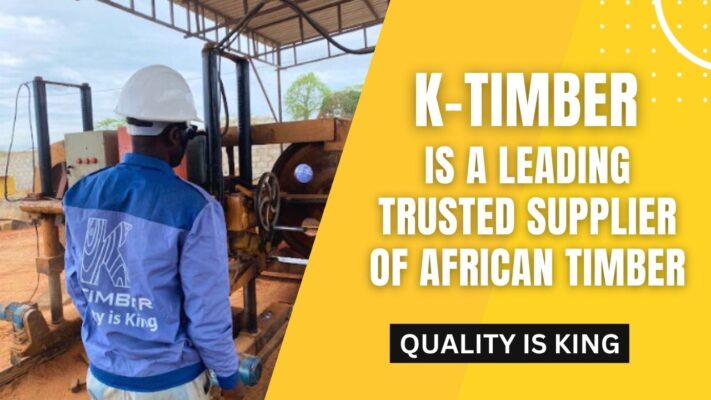
In addition, K-TIMBER is committed to its partners on wood quality according to FAS standards and up to 90% good wood rate. With a history of exporting timber to over 30 countries around the world, we are confident in bringing customers the top-quality hardwood products in the world.
Verifying documents and licenses
Before making a decision to cooperate with any timber supplier, it is important to request a certificate of origin (C/O) and an export license. These documents are essential to ensure the transparency and legality of the supply chain. They not only verify the origin of the wood but also certify that the logging and export processes are carried out in accordance with strict legal regulations.
In addition to requesting a certificate of origin and an export license, you should also ask the African timber supplier to provide documents proving that the wood was logged and exported in accordance with the following standards:
- CITES (Convention on International Trade in Endangered Species of Wild Fauna and Flora) is an international treaty that regulates the trade of endangered species of wild fauna and flora. Some types of African wood are protected under CITES, so wood in this group requires a CITES permit to be exported.
- FSC™ (Forest Stewardship Council™) is an international non-profit organization that sets standards for sustainable forest management. FSC™-certified wood is wood that was logged from sustainably managed forests that do not harm the environment.
- IFC-PS (International Finance Corporation Performance Standards) is a set of environmental and social management standards that are applied to investment projects of the International Finance Corporation (IFC). Wood logged from IFC investment projects must meet IFC-PS environmental and social standards.
- ILO (International Labour Organization) is an intergovernmental organization that sets labor standards. Wood logged from forests must be logged in accordance with ILO labor standards, ensuring the rights of workers.
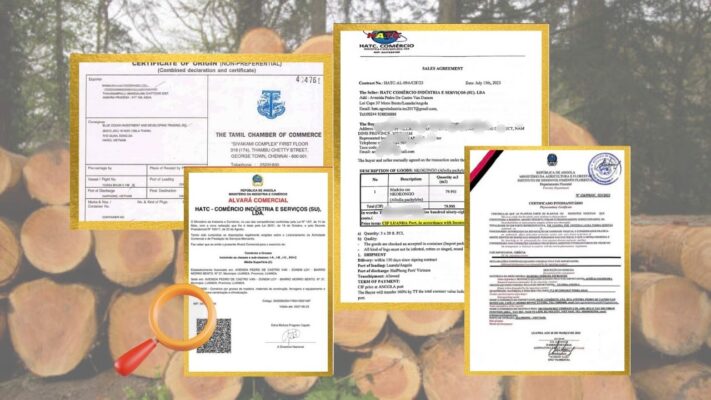
Conducting an on-site inspection
To ensure the quality and transparency of the wood import process, you should conduct an on-site inspection at the supplier’s facility, if possible. This gives you the opportunity to directly observe and inspect the quality of the product, and verify the information about the quantity of wood you need to purchase.
In addition, an on-site inspection can help you ensure that the supplier complies with quality standards and protects natural resources. During the inspection, you can evaluate the processing process, and the sustainable origin of the wood, and verify whether the supplier uses reasonable logging methods.
If you cannot visit the supplier’s facility in person, you can request that they provide wood samples or detailed product information. This will help you avoid unexpected risks and ensure that your project will be carried out with high-quality materials.
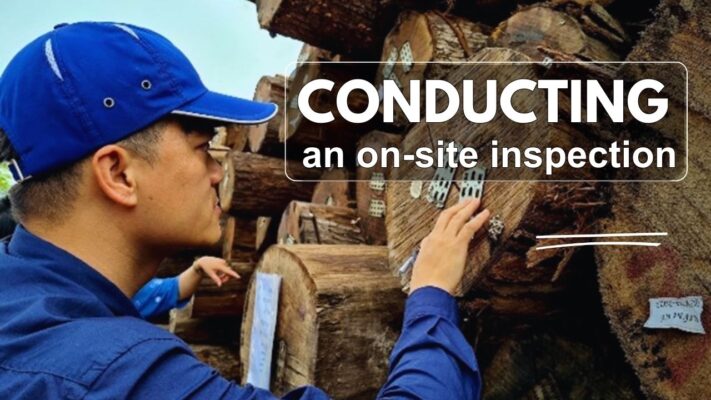
Using safe payment methods
To ensure the rights of both parties in international trade transactions, it is essential to choose a safe payment method. One of the most commonly used payment methods today is wire transfer (T/T). This method allows the two parties to make payments quickly and conveniently, while also being able to guarantee the rights of both sellers and buyers.
Accordingly, the payment process is usually carried out as follows: a deposit of 70% before signing the contract and the remaining 30% after the goods are loaded into the container or can apply a minimum deposit of 30% before signing the contract. This method helps ensure that the seller will deliver the goods of the right quality and the buyer will pay the remaining full amount.

In addition, businesses can also use the letter of credit (L/C) payment method. This method has the advantage of being the safest for both parties, as the bank commits to paying the seller if the seller presents a set of payment documents that complies with the L/C regulations. However, L/C fees are usually higher than other payment methods.
In the context of increasingly deep international integration, businesses need to raise awareness of safe payment methods to protect their rights in international trade transactions.
Here are 5 ways to avoid being scammed when buying wood in Africa that K-TIMBER wants to share with you. These measures not only help protect the interests of consumers, but also support the sustainability of the global wood industry. By choosing to buy wood from reputable suppliers, you will help ensure that the wood you buy is of good quality, has a clear origin, and is harvested and processed in a sustainable way. This ensures the rights of both buyers and sellers in the process of international trade.



